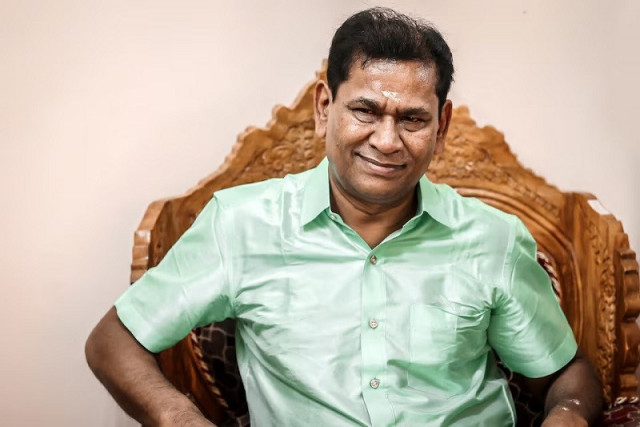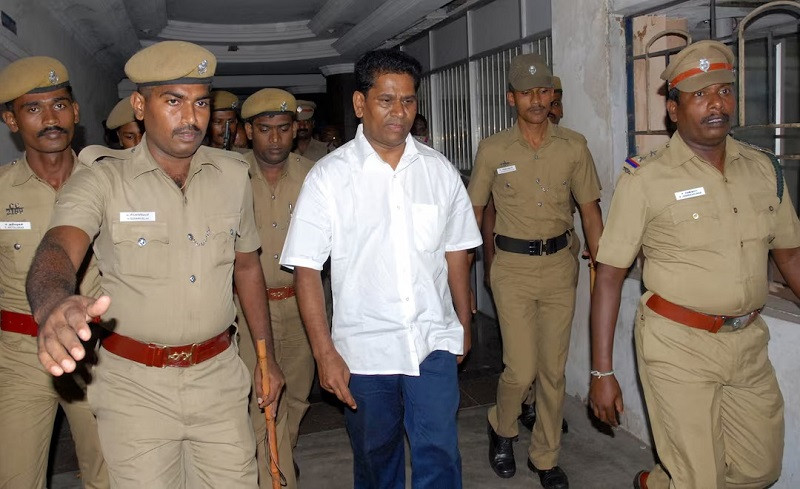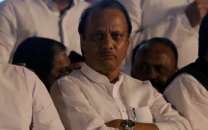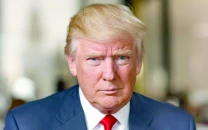India's 'lottery king' emerges as top political donor in opaque system
Martin's Future Gaming and Hotel Services spent $165 million between 2019 and 2024 in political donations

India's "lottery king", accused by the authorities of fraud and money laundering, has emerged with his company as the nation's top political donor under an opaque funding system that has just been partially opened to scrutiny.
Santiago Martin's Future Gaming and Hotel Services spent 13.68 billion Indian rupees ($165 million) between 2019 and 2024 - 40% more than the next-highest donor - under the now-scrapped funding system, which allowed anonymous and unlimited donations to political parties, data showed on Thursday.
The information, published by the election commission on the orders of India's Supreme Court, shows Prime Minister Narendra Modi's Bharatiya Janata Party was the biggest overall recipient but does not detail which party any donor gave to.
Future Gaming did not respond to Reuters request for comment on its donations. Although the court found the "electoral bonds" system unconstitutional, there was no suggestion that donations were improper.
The data on the defunct funding system draws attention to the chequered history of Martin, 59, who built a lottery-to-real estate empire up from selling lottery tickets as a teenager.
Read also: Obscure trust links India's top businesses with Modi's election war chest
A flashy, smooth-talking figure who has made friends across the political spectrum, Martin has splurged on politicians, handing out expensive gifts as his business empire grew, according to local press accounts.
Over the years, tax authorities, police and investigative agencies have searched his business premises and seized properties in connection with cases against him. His appeals against property seizures by the Enforcement Directorate, India's financial crime agency, were dismissed last year.
The directorate filed a prosecution complaint in court in September against Future Gaming and 15 other Martin-affiliated companies under the money-laundering statute.
"They have allegedly cheated the lottery issuing state governments by not depositing the entire sale proceeds generated from the sale of lotteries," and violated the lottery law by illegally retaining and claiming prizes on unsold tickets, and manipulating data, the agency said.
Martin and his firm have denied wrongdoing. His conglomerate, Martin Group, said in October the group and its firms obey the law and that Martin was India's highest taxpayer in the financial year to March 2003.
Labourer to hobnobber
After working as a teenage labourer in Myanmar to support his family, Martin returned to India in the late 1980s and began his business career in the southern city of Coimbatore, according to his nonprofit Martin Charitable Trust.
The two-digit lottery he ran gained popularity in the region as poor people dreamt of becoming rich overnight. Martin expanded to other states and eventually to neighbouring Bhutan and Nepal, where he had a monopoly on distributing the tickets, according to his website.
He produced a 200-million-rupee ($2.4-million) film - written by the chief minister of Tamil Nadu state and based on Russian writer Maxim Gorky's novel "Mother" - that was released in 2011.
That year the state's ruling party lost elections and Martin's fortunes turned.

Santiago Martin, an Indian businessman, is escorted by police officers as he arrives to appear before a court in Coimbatore, India, September 8, 2011. PHOTO: REUTERS
He and his affiliates faced fraud allegations in 32 lottery scandal cases registered by India's federal police, including for allegedly defrauding the northeastern state of Sikkim of more than 45 billion rupees in unpaid lottery ticket proceeds.
He was jailed with several politicians for eight months in connection with 14 cases, including charges of land-grabbing, cheating and illegal lottery sales. He has not been convicted in any of the cases, some of which are still pending, and was released on bail in 2012.
As his troubles mounted, Martin's family took centre stage. His wife shared a dais in 2014 with Modi during his successful campaign for prime minister, and Martin's eldest son Charles joined Modi's party a year later.



















COMMENTS
Comments are moderated and generally will be posted if they are on-topic and not abusive.
For more information, please see our Comments FAQ